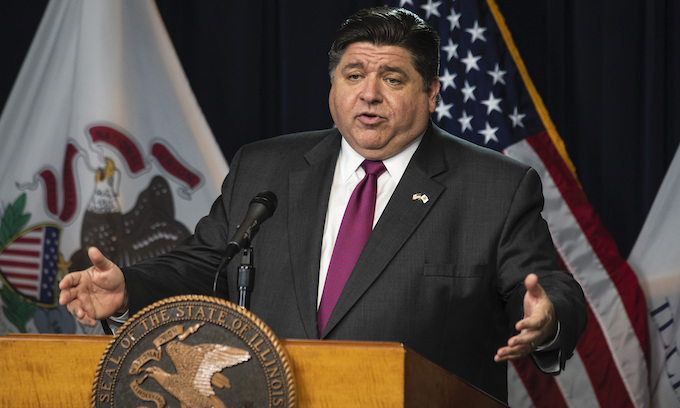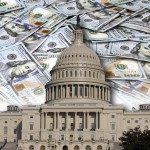When Illinois restaurants were ordered shuttered by Gov. Pritzker in mid-March, restaurant owners, chefs and workers braced for several weeks of zero income.
When the order was extended through April, and then May, the industry pointed to June.
But Pritzker’s five-phase plan, announced Tuesday, set the earliest-possible day for reopening at June 26, and that date is by no means definite.
For an industry already struggling to hang on, the news was devastating.
“It hasn’t been the best 24 hours for me,” said R.J. Melman, president of Lettuce Entertain You Enterprises. “I’ll preface everything by saying, at the end of the day, the health and safety of our guests and employees is truly number one.”
“But this was a gut punch,” he said. “I think all of us were in an emotional state to get going by June 1; we were marching in that direction. It’s devastating to be told that ain’t gonna happen until maybe July 1.”
“Illinois, where the vast majority of (Lettuce) businesses are, was one of the first states to close restaurants, and now will be one of the last three to open,” Melman said. “Best I can see, our restaurants will be closed for 17 weeks. I don’t know how we survive that. It’s not about loans, or grants, or anything; many Illinois restaurants won’t survive.”
Sam Toia, president and CEO of the Illinois Restaurant Association, said the announcement caught him, and other industry leaders, flatfooted.
“The state really did not really collaborate with us,” Toia said, “and we’re the largest private-sector employer in the state of Illinois. We’re having some communication now, but the plans are already out there.”
According to Pritzker’s phased plan, restaurants would not be able to reopen until Phase 4. The state is currently at Phase 2; Phase 3 would permit manufacturing, offices, retail, barbershops and salons to reopen (subject to safety guidelines and limited capacity).
Restaurateurs ask: Why can’t we be part of Phase 3?
“Remember, if we go to June 25, some restaurants will have been closed for 16 weeks,” Toia said. “And others (those offering takeout and delivery) are down 70 to 80 percent in sales. That’s not a pretty picture. The state is underestimating our ability to operate safely.”
“We’re one of the most highly regulated businesses in the state,” Toia said. “We’re very progressive when it comes to health and safety — food-handling certificates, management certificates, sanitation — all the restaurants care about the safety and health of their team members and customers.”
“But what about financial health?” Toia asked. “At the beginning of the year, the restaurant industry had 594,000 workers. As of last week, 321,000 were on unemployment or furlough.”
Toia said restaurant openings should be part of Phase 3, which would allow some restaurants to open as soon as June 1.
“Even if it’s slowly,” he said. “Let restaurants open June 1 at 25 percent capacity, then 50 percent by June 28. Some states are already open — Indiana, Georgia, Texas, Tennessee. So we’re going to see in another 10 days if there’s a spike in cases. If there is, OK, but if not, why can’t we look at June 1?”
“And when he’s saying the earliest date is the 26th, he’s not saying which region this is,” Toia said. (Pritzker’s plan divides the state into four regions.) “Is it the South? Does that mean Northeast (which includes Chicago) waits even longer?”
“We need more guidelines,” Toia said. “There are a lot of unanswered questions.”
“I’d say (the announcement) was surprising,” said Scott Weiner, co-founder of the Fifty/50 restaurant group and member of the Illinois Restaurant Association Board. “But I’m less calm than I was a day ago, and I don’t have any more knowledge as to when we’ll be able to open to customers.”
“The people’s health has to be the number one priority,” he said, “and I definitely empathize with the weight of these decisions. But after hearing a best-scenario date of June 26, with 28 million people unemployed — every month this goes on adds another six months it’ll take to recover. And not having any certainty to occupancy restrictions makes it hard to make plans. We’ve already come to terms with how big parties and wedding will be down. But now, you can’t even have a birthday party.”
“I think the disappointment started when we heard that the Illinois Restaurant Association and City Hall hadn’t been consulted,” said Kevin Boehm, co-founder of the Boka Resturant Group and one of the founders of the Independent Restaurant Coalition, which is directing its advocacy work to Congress. “It’s just so very arbitrary, and disconnected to us.”
“Get us on the phone,” Boehm said. “Those of us who’ve done this for a long, long time; give us the opportunity to build SOPs (standard operative procedures) to make restaurants safe. I truly believe they underestimate what we can do.”
Boehm echoed others in expressing dismay over the requirement that transitions, from one phase to the next, wait at least 28 days.
“Twenty-eight days between determinations, and in New York it’s 14 days?” he asked. “New York was hit the worst; why is it 14 days there and 28 days here? And there’s no guarantee we can open June 26; do we have to wait 28 more days? If we don’t open until July 24, the number of restaurants going out of business will be staggering.”
“And (Pritzker’s) Stage 4 doesn’t specify restaurant occupancy,” Boehm said, “which means there’s no opportunity for planning.”
“We are all for safety,” Boehm said. “We’re just asking for the governor to give us a voice.”
Boehm said he feels equally frustrated dealing with Congress.
“There are some small changes that, if they could happen, could change the landscape,” he said. “If we change the origination date for the Payroll Protection Program to Aug. 30, that would be a game-changer. A stabilization fund for restaurants that aren’t public, a (monetary) carveout dedicated to restaurants, that’s a game-changer. And I don’t know why we can’t get these things done.”
“Our entire restaurant world is based on a sense of urgency,” he said, “and to see low little urgency there’s been, it’s tough not to feel forgotten about. I spend 10 hours a day talking to senators.”
“It’s planting flowers that may never bloom,” he said, “and it just makes me crazy.”
___
(c)2020 the Chicago Tribune
Visit the Chicago Tribune at www.chicagotribune.com
Distributed by Tribune Content Agency, LLC.
—-
This content is published through a licensing agreement with Acquire Media using its NewsEdge technology.



















Recent Comments